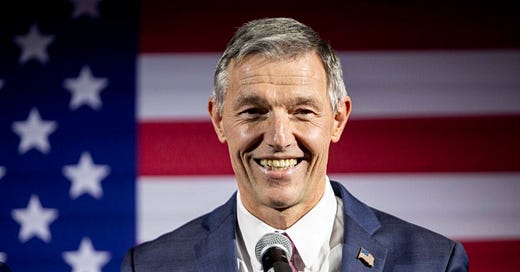Behind Bars and Beyond Borders: El Salvador’s Prison Revolution and the Shadow of China
In this discussion, Congressman Mike Kennedy reflects on a congressional delegation’s visit to El Salvador, highlighting the country’s dramatic transformation under President Nayib Bukele. Once one of the most dangerous nations globally, El Salvador has slashed its homicide rate from 31 to 1.9 per 100,000—now reportedly safer than Chicago. Central to this change is a new mega-prison, built in just seven months, which houses tens of thousands of former gang members in austere conditions. Congressman Kennedy contrasts this with the U.S. prison system, criticizing what they see as excessive leniency.
The conversation also warns of growing Chinese influence in Central America, particularly through free 5G networks in struggling nations like El Salvador. The episode frames these developments as part of a broader geopolitical and ideological struggle, touching on U.S. border security and criminal deterrence as key national concerns.
Transcript:
Congressman Kennedy: Yeah, it was Chairman of Ways and Means, Jason Smith, set up this visit, and we were able to, in a series of countries, we went to four countries in total, and one of them was El Salvador. It's very interesting. The first thing I'd say outside of the prison is that China is on the march.
The Chinese Communist Party is offering for free 5G networks to El Salvador, and as a country that struggles, that's really disturbing to me to think. What is that free 5G network in El Salvador going to do for the Chinese Communist Party, but promote communism and demote the United States of America?
So that's just a side conversation that we need to be careful because China is in our backyard in Central and South America. But when it came to this prison, actually, President Bukele actually built that prison in seven months. It's a 40,000 person prison. And they did that in seven months.
And it was because it was one of the most dangerous countries on the planet. Their homicide rate per 100,000 was 31. And in a limited period of time, just a few years, they've dropped it to 1.9. Actually, El Salvador is now safer than Chicago. United States of America, city Chicago. So he, President Bekele,
has done a dramatic turnaround for his country, which was being devastated by MS-13 gang members and terrorists that were running their country. So when we went in the prison, we were able to actually see the gods of the streets that are now behind bars.
And these people decided who was going to live and who was going to die when they were out on the streets. And now they're behind bars. And actually, the president of El Salvador has actually driven his country into a much safer realm, unlike just a few years ago.
Driena Sixto: Yeah, that's the maximum security terrorism confinement center called CECOT up in down in Salvador that has a variety here, popularity here. How would you say that this prison has deterred criminals in El Salvador from doing what they've been doing? And do you think that something similar would work here in the United States?
Congressman Kennedy: We in our country have spent many years coddling prisoners. And I'll say on both sides of it is that there's there's. So let's talk about the conditions in that prison in El Salvador is there's no cell phones, no television, no radio. They sleep without pillows and mattresses. They're in 80 person cells.
So each cell, it's a large warehouse that we were brought into. Each cell, there was, if I remember correctly, 32 cells. And each of those cells hold 80 people. And the beds were metal frames that were stacked four high, kind of front to the back of these cells with two toilets and two water troughs inside of these facilities. And in other words, these prisoners are not coddled. They are not brought in to get law degrees. As you may know, our current prison environment is many of these lawyers, these prisoners end up getting law degrees or the equivalent of such, because there's access to all sorts of library books and these people study all the time. They file their own complaints against the system and their own appeals. So we've spent, and I want all people treated humanely, but I think we've gone too far in our country and President Bukele in El Salvador has demonstrated in a desperate circumstance that actually crime doesn't pay in El Salvador. And he's doing two things. One, he's imprisoned many of these individuals that were ruining his country. But in addition, he's made it so hard that actually a lot of the terrible criminals, they've left the country and gone to easier marks in other countries.
And I'm afraid some of them have tried to come to the United States, but now that President Trump is on the watch. Our border is the most secure border in the history of my lifetime, if not the entire lifetime of our country. That was a big thing that President Trump needed to do.
He promised to do, and he has done it, is he secured our borders. And now those people in El Salvador that want to do nefarious crimes, they're not fleeing to the United States as they did during the reckless Biden administration. They're not coming here to do their crimes.
They're actually barred from doing that thanks to our border control.
Listen to the full episode of Breaking Battlegrounds anywhere you stream your podcasts!



